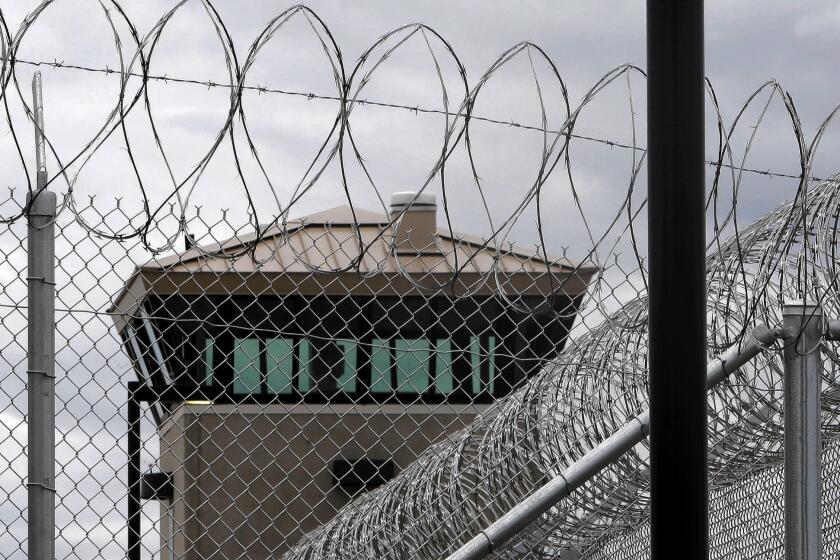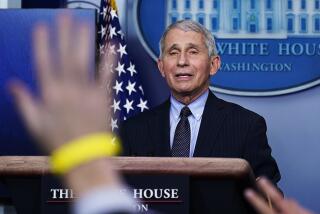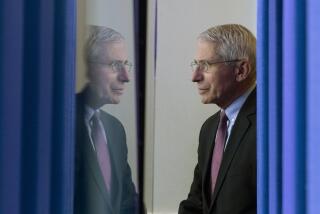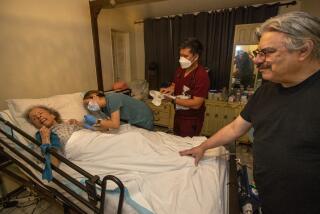Fauci says U.S. may see ‘a surge upon a surge’ of coronavirus in weeks
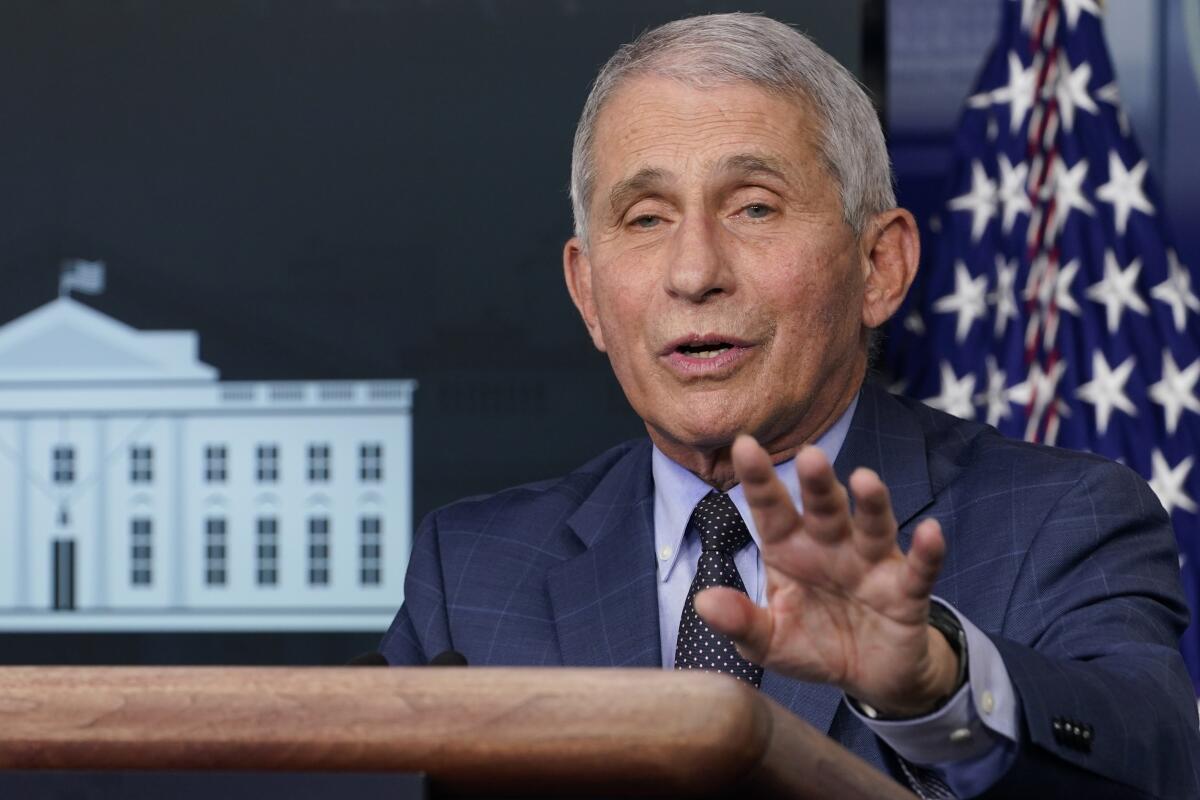
The nation’s top infectious disease expert said Sunday that the U.S. may see “surge upon a surge” of the coronavirus in the weeks after Thanksgiving, and he does not expect current recommendations around social distancing to be relaxed before Christmas.
Dr. Anthony Fauci, director of the National Institute of Allergy and Infectious Diseases, told ABC’s “This Week” that the level of infection in the U.S. would not “all of a sudden turn around.”
“So clearly in the next few weeks, we’re going to have the same sort of thing. And perhaps even two or three weeks down the line ... we may see a surge upon a surge,” he said.
Fauci addressed the school issue, saying that spread “among children and from children is not really very big at all, not like one would have suspected. So let’s try to get the kids back, but let’s try to mitigate the things that maintain and just push the kind of community spread that we’re trying to avoid,” he said.
California state prisons continue to contend with new, growing outbreaks at multiple facilities amid lapses in tracing, testing, and mask-wearing by guards.
Fauci also appeared on NBC’s “Meet the Press,” where he made similar remarks, adding that it’s “not too late” for people traveling back home after Thanksgiving to help stop the spread of the coronavirus by wearing masks, staying distant from others and avoiding large groups of people.
“So we know we can do something about it, particularly now as we get into the colder season and as we approach the Christmas holidays,” he said.
The number of new cases reported in the United States topped 200,000 for the first time Friday. The highest previous daily count was 196,000 on Nov. 20, according to data from Johns Hopkins University.
Since January, when the first infections were reported in the U.S., the nation’s total number of cases has surpassed 13 million. More than 265,000 people have died.
Fauci said the arrival of vaccines offers a “light at the end of the tunnel.” This coming week, the Advisory Committee on Immunization Practices will meet with the Centers for Disease Control and Prevention to discuss a rollout of the vaccine, he said.
He added that President-elect Joe Biden should focus on distributing vaccines in an “efficient and equitable way.” Fauci also said he planned to push the new administration for a rigorous testing program.
“We’ve got to go beyond the symptomatic people and get a better understanding of the asymptomatic transmission,” he said.
Healthcare workers will likely be among the first to get the vaccine, with the first vaccinations happening before the end of December, “and then as we get into January and February and March, more and more,” he said.
“So if we can hang together as a country and do these kinds of things to blunt these surges until we get a substantial proportion of the population vaccinated, we can get through this,” Fauci said.
Other experts agreed that the coming weeks would be difficult, especially since so many traveled over the holiday and held in-person dinners indoors.
Dr. Deborah Birx, the White House coronavirus response coordinator, said Sunday on CBS’ “Face the Nation” that Americans who traveled this past week should try to avoid people over 65. She said that those who were around others for Thanksgiving “have to assume that you were exposed and you became infected and you really need to get tested in the next week.”
In New York, some elementary schools and pre-kindergarten programs will resume classes Dec. 7, a week from Monday, the mayor said. Others will take longer to reopen their doors.
About 190,000 students will be eligible to return to classrooms in the first round of reopening, just a fraction of the more than 1 million total pupils in the system. A large majority of parents have opted to have their kids learn remotely by computer.
More to Read
Start your day right
Sign up for Essential California for news, features and recommendations from the L.A. Times and beyond in your inbox six days a week.
You may occasionally receive promotional content from the Los Angeles Times.
